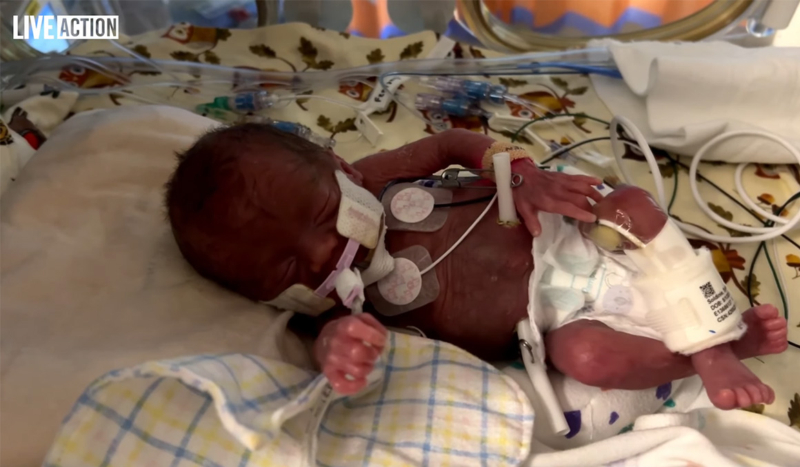
LiveAction video screengrab / YouTube
A new video from Live Action calls into question one of the most commonly repeated claims about abortion in the US — that late-term abortions are rare and performed only in tragic medical situations.
The video features Dr. Monique Ruberu, a board-certified OB-GYN, who presents statistical data and medical insight to argue that late-term abortions are far more common — and less medically urgent — than many believe.
Referencing data from the Guttmacher Institute, a pro-abortion organization, Ruberu noted that between 6.3% and 7.4% of abortions occur at or after 15 weeks of pregnancy. Based on Guttmacher’s own 2023 figures, she calculates that this range translates to approximately 65,331 to 76,738 abortions annually.
She noted that even though late-term abortions account for a small percentage of abortions overall, they still result in a significant number of lives lost.
“When we’re talking about a million abortions per year, 1% of that is still 10,000 abortions per year,” she said. “27 abortions per day. That’s a whole classroom of children.”
She compared the treatment of these figures to how the public responds to other causes of death, pointing out that rare events — such as firearm-related or alcohol-induced deaths — are still treated with urgency and public concern, despite representing a small share of overall mortality.
“You don’t care if it’s rare if it happens to you,” she says. “No loss of life should ever be treated as insignificant.”
The video also contrasts emergency medical care — such as early delivery to protect a mother’s health — with late-term abortion methods that intentionally end the life of the child.
Ruberu explained that viable infants have survived outside the womb as early as 21 weeks. In these situations, she said, the ethical response is to attempt life-saving care for both mother and child, rather than resort to intentional termination.
Ruberu described how later abortions are typically performed: dismemberment procedures in the second trimester and lethal injection in the third. She states that these are not required medical responses and that better alternatives exist, including palliative care and perinatal hospice when poor diagnoses are confirmed.
Citing earlier studies from the Guttmacher Institute, Ruberu also pointed out that most women seeking abortions later in pregnancy do not do so for medical reasons. Research indicates that their decisions are often based on personal or socioeconomic factors such as financial concerns, relationship instability, or educational plans — similar to reasons given for first-trimester abortions.

